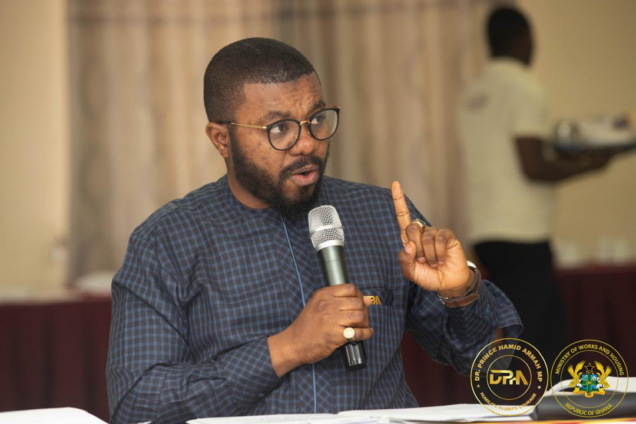As an academic with extensive experience in research methods, I have devoted a significant portion of my work to developing a deep understanding of how to measure social constructs, such as voter attitudes, intentions, and behaviours. My expertise extends to the conditions under which one can confidently generalise findings from a sample to a broader population.
This foundation is the reason I taught Research Methods during my time at the university, both full-time and part-time, and why I have led several research components for projects funded by prestigious international organisations such as The World Bank and the Foreign, Commonwealth, and Development Office.
While I am currently preparing a comprehensive paper critiquing the recent works of Global InfoAnalytics, I want to highlight a crucial issue in their approach. As a practitioner with a firm grounding in the real number system—encompassing whole numbers, natural numbers, integers, rational numbers, and irrational numbers—I understand the importance of carefully linking the empirical world (what we observe with our senses) to the abstract world of numbers. This connection must be made cautiously to avoid misleading the public and readers.
Global InfoAnalytics’ recent work, which seeks to represent feelings, opinions, and perceptions through numerical values, presents a key flaw. When a poll or survey includes as much as 87% of respondents who are undecided or neutral, it raises significant red flags. Such a high level of neutrality not only has the potential to skew the results but also severely undermines the reliability of the findings. This degree of ambivalence often signals deeper issues, such as unclear questions, lack of engagement from respondents, or the failure of the survey instrument to elicit strong opinions.
From a methodological standpoint, this undermines the integrity of the data. In social research, neutrality at this level suggests confusion or indifference among the sample population. More importantly, it could point to flaws in how the research is designed—whether the questions lack clarity, the topic is poorly framed, or the respondent pool is not adequately representative.
Before one can confidently present findings that generalise to a broader population, these issues must be rigorously addressed. Global InfoAnalytics’ failure to account for such a significant portion of neutral responses raises concerns about the validity of their conclusions. I would urge them, and others interpreting their findings, to carefully reassess the data, scrutinise the survey design, and investigate the respondent demographics before making any broad claims.
Thus, those who feel favoured by this research should not celebrate just yet, and those against the findings should not be disturbed. The data is far from conclusive, and the significant presence of undecided respondents suggests that the conclusions drawn from this poll should be treated with caution. Further refinement and analysis are necessary to ensure that the results accurately reflect the opinions of the population.
Policy Recommendations: Legal Regulation or Voluntary Association
To prevent the public from being misled by flawed polling practices, two potential policy options could foster transparency and accountability in the polling ecosystem.
- Legal Regulation and Oversight: One option would be to establish a formal regulatory framework, where a government or independent body oversees the activities of polling organisations. This body could enforce legal standards for the design and implementation of opinion polls, ensuring that polls adhere to strict methodological guidelines. The creation of such a regulatory body would help protect the integrity of public opinion data and prevent organisations from presenting skewed or unreliable results. This approach mirrors best practices in several developed countries where polling standards are legally mandated and closely monitored.
- Voluntary Association and Peer Review: Alternatively, polling companies could come together to form a National Polling Council as a voluntary association. This council would function as a self-regulatory community of practice where member organisations engage in peer review, share best practices, and hold each other accountable. The purpose of this council would be to foster transparency, uphold rigorous methodological standards, and encourage ethical conduct in polling. By voluntarily participating in such an association, polling companies could build trust with the public and policymakers, ensuring that the data they produce is reliable and credible. This approach allows the industry to regulate itself through collaboration and shared responsibility, stimulating continuous improvements in the quality of polling.
Both approaches—legal regulation or voluntary association—have their merits. Legal regulation would provide enforceable standards and ensure that all polling organisations meet a minimum threshold of quality and transparency. On the other hand, a voluntary association would promote industry collaboration, encouraging organisations to strive for higher standards through peer accountability and shared expertise.
In research, especially where public perceptions and opinions are quantified, precision and transparency are essential. Whichever path is chosen, the goal remains the same: to ensure that the data used to inform public discourse and policymaking is accurate, transparent, and methodologically sound.
Latest Stories
-
Pakistan to nominate Trump for Nobel Peace Prize
34 minutes -
Suicide bombing at Damascus church kills 22, Syrian authorities say
47 minutes -
Bellingham scores as 10-man Real Madrid beat Pachuca
1 hour -
Three fans die in Algeria football stadium fall
1 hour -
South African engineers freed after two years in Equatorial Guinea jail
1 hour -
FedEx founder and former boss Fred Smith dies aged 80
2 hours -
Bride shot dead in attack on French wedding party
2 hours -
Legon Cities handed transfer ban over unpaid GHC 29,000 compensation to Francis Addo
2 hours -
Alonso says FIFA investigating racial abuse against Rudiger
2 hours -
Rashford would like to play at Barcelona with Yamal
2 hours -
Africa World Airlines to reduce air fares by end of June 2025
4 hours -
Nationwide crackdown: Ghana’s Anti-Galamsey Task Force intensifies operations
4 hours -
TOR debt rose to a record $517m as of December 2024
5 hours -
‘Good Girl No Dey Pay’ but it cost me plenty – Maya Blu gets candid
5 hours -
GFA imposes transfer ban on Hearts of Oak over unpaid $70,000 debt to New Edubiase
5 hours

